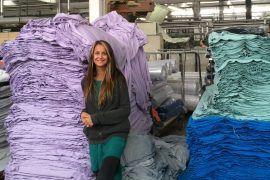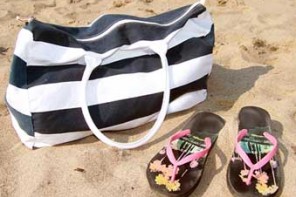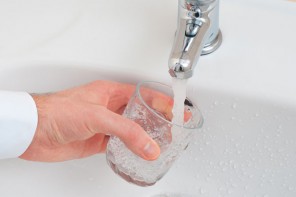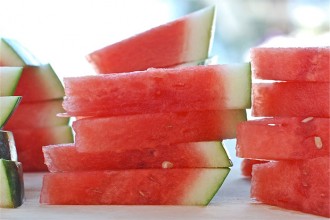Living in a way that is kind to the planet is always a good thing, but you might not realise the power your daily choices have to help save animals in the world’s oceans. With World Oceans Day taking place on the 8th of June, here are some green living tips to keep in mind:
Pass on Plastic
You know that using lots of plastic is a negative thing because it ends up in landfills and can only be recycled a few times before becoming waste, but plastic also affects the ocean. It not only leaks chemicals into the environment and water, but can end up harming marine life. It becomes a choking or injury hazard, and small particles of plastic that are consumed by animals can kill them. Styrofoam is also a baddie as it doesn’t decompose. Stop using so much plastic and you can minimize the problem.
Unplug!
Take stock of how much energy you use around the house and try to lower your consumption. This includes flipping the light switch when you’re not in the room, and pulling the plug on appliances when they’re not in use (switching them off or putting them on ‘standby mode’ is not enough!). This not only saves you money but prevents the unnecessary heating up of our planet and oceans.
Stop Using Animal Products
If you stop buying clothing, accessories and other items that contain animal ingredients, you prevent the unnecessary killing of marine animals. These products include squalene, derived from shark livers, and Herring fish scales that are used to make sparkly nail polish. Note the ingredients that are listed on products and research the unknown ones a bit on the internet to discover their origins.
Look, Don’t Touch!
When you’re enjoying a diving trip, don’t touch anything in the deep. Minimal contact with coral reefs can damage them or make them more susceptible to acquiring diseases. Coral reefs are so important because they provide homes for 25% of marine plants and animals, along with hiding places from predators.
Decrease Air Pollution
You might not think so, but pollution in the air negatively affects the ocean, making it more acidic. This can result in harm to various ocean creatures. Fish egg and larvae battle to develop properly as a result of changes in the ocean chemistry. Try to lower your contribution to air pollution, such as by riding your bike instead of driving everywhere and not using aerosol cans.
Eat Sustainable Fish
If you eat fish, make consumption choices that do not harm the ocean. The Southern African Sustainable Seafood Initiative offers a guide that directs consumers to the most and least sustainable fish food varieties. The green category includes fish that people are encouraged to choose because they are sustainable. The orange and red categories are worth noting as they contain fish that are best avoided.
Image here











